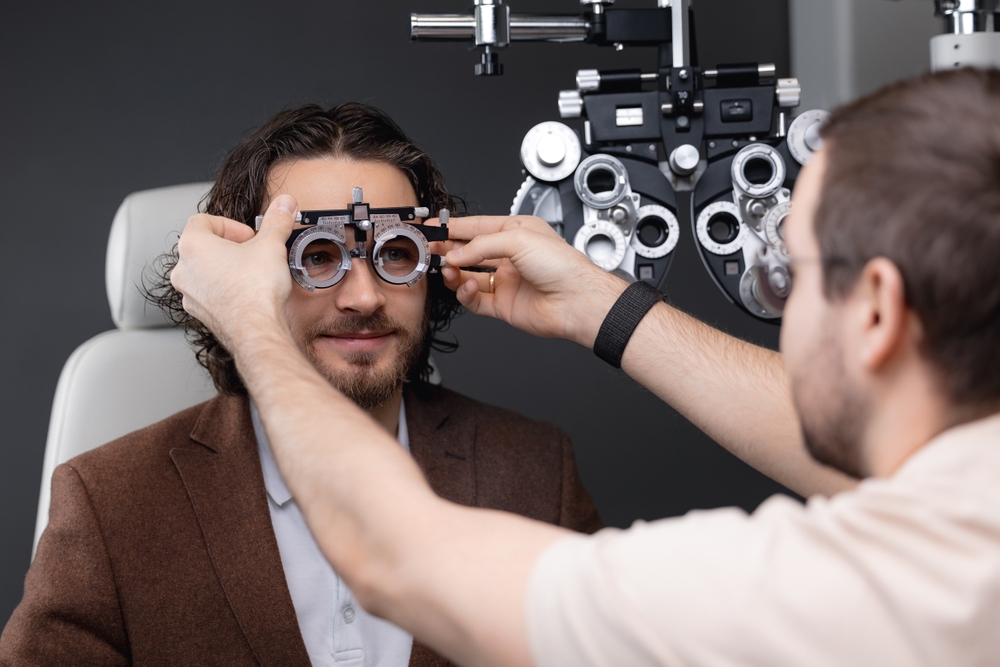
What to Expect from Your Comprehensive Vision Exam
A comprehensive vision exam is essential to maintaining good eye health and clear vision. Whether it’s your first visit or a routine check-up, knowing what to expect can help ease any nerves and ensure you get the most out of your appointment. At Kopolow & Girisgen Doctors of Optometry, our dedicated team is committed to providing thorough eye care in a comfortable and welcoming environment. Here's a guide to what you can expect during your comprehensive vision exam.
Review of Medical and Vision History
Before your exam begins, we’ll start by gathering important details about your eye health and general medical history. You’ll be asked about any current vision concerns, previous eye conditions, medications, family history of eye diseases, and your lifestyle (such as screen time and outdoor activities). This information helps us understand your overall eye health and any potential risks.
Visual Acuity Test
The visual acuity test is the part most people are familiar with—it’s the classic eye chart test. You’ll be asked to read letters on a chart from a distance to measure how well you can see at various distances. This helps us determine your prescription for glasses or contact lenses if needed.
Eye Movement and Coordination Test
To ensure your eyes are working together properly, we’ll assess your eye movement and coordination. This test checks how well your eyes align and track moving objects, which is important for clear, comfortable vision.
Refraction Assessment
During the refraction assessment, we’ll fine-tune your prescription for glasses or contact lenses. You’ll look through a series of lenses and tell us which ones make the letters on the chart clearer. This test helps determine the exact lens prescription that will give you the sharpest vision possible.
Slit-Lamp Examination
A slit-lamp exam allows us to take a detailed look at the front part of your eye, including your eyelids, cornea, and lens. By shining a light into your eye, we can check for signs of cataracts, corneal damage, or any other issues affecting your eye’s surface.
Intraocular Pressure Test (Tonometry)
To screen for glaucoma, we’ll measure the pressure inside your eyes using a tonometry test. There are different methods for measuring eye pressure, but most commonly, you’ll experience a quick puff of air directed at your eye. This painless test is vital for detecting early signs of glaucoma.
Retinal Exam
A comprehensive eye exam also includes a closer look at the back of your eye—specifically, your retina, optic nerve, and blood vessels. We may use dilating eye drops to widen your pupils, giving us a better view of the retina. This exam helps in identifying conditions like macular degeneration, diabetic retinopathy, and retinal detachment.
Discussing Results and Recommendations
Once your exam is complete, your optometrist will review the findings with you. If a prescription is needed, they’ll discuss the best options for glasses or contact lenses. If any eye conditions are detected, you’ll receive personalized recommendations for treatment, follow-up care, or specialist referrals if necessary.
Why Regular Eye Exams Are Important
Even if you aren’t experiencing vision problems, regular eye exams are critical to maintaining long-term eye health. Many eye conditions, such as glaucoma and macular degeneration, can develop without noticeable symptoms in the early stages. Early detection through a comprehensive vision exam is key to preventing vision loss and managing eye health effectively.
Schedule Your Exam at Kopolow & Girisgen, Doctors of Optometry Today
At Kopolow & Girisgen Doctors of Optometry, we’re committed to ensuring your eyes stay healthy and your vision remains clear. Whether it’s time for your annual check-up or you have specific vision concerns, our experienced team is here to provide expert care. By keeping your eyes healthy with regular exams, you can enjoy clear vision and catch any potential issues early.
Schedule your comprehensive vision exam with Kopolow & Girisgen, Doctors of Optometry, to protect your eye health and enjoy the best possible vision. Contact us today to book an appointment online or text GLASSES to 21000!








